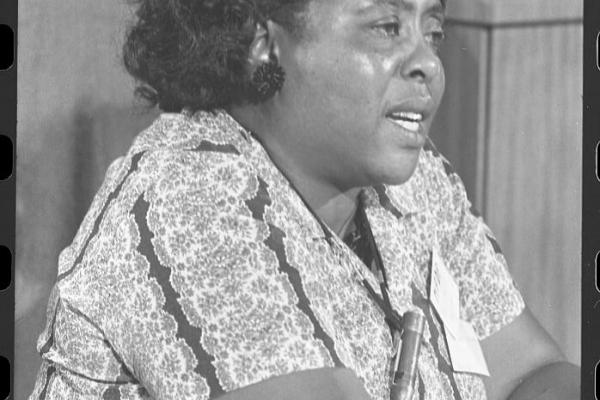This article originally appeared in the December 1982 issue of Sojourners. To subscribe, click here.
In a time of darkness on the Delta, of darkness covering the earth and gross darkness the people, the light yet shone. From the black bottom lands and the dark swamps to the hills and distant mountain tops, a voice was heard from a daughter of Zion living in the midst of suffering but able to rejoice greatly, a daughter of Jerusalem who could shout with faith, for she believed, "Behold, thy King cometh unto thee."
Fannie Lou Hamer is remembered most for her proclamation of the Word, especially through songs like "This Little Light," an old song of faith with new words but the same underlying biblical message. Its Scripture references were familiar to her original audiences of poor black people in the churches, fields, highways, and prisons of Mississippi:
This little light of mine, I'm gonna let it shine...
Let it shine, let it shine, let it shine!
Jesus gave it to me now, I'm gonna let it shine...
I've got the light of freedom, I'm gonna let it shine...
All over the Delta, I'm gonna let it shine...
Let it shine, let it shine, let it shine!
Hamer accepted the power of the gospel within and the joyful work of shouting and sharing and spreading the light.
Radical, in the deepest sense
This woman, Mississippi's most respected and loved freedom fighter, left the cotton fields in 1962 to take her message of faith and freedom to the world. For 15 years she preached in travels all across the United States and in one trip to West Africa. Her life was also full of physical illness and, after a long bout with cancer, she died in 1977. Her grave is in a Sunflower County cotton field, on black cooperatively owned farming land, just outside her town of Ruleville.
Read the Full Article

